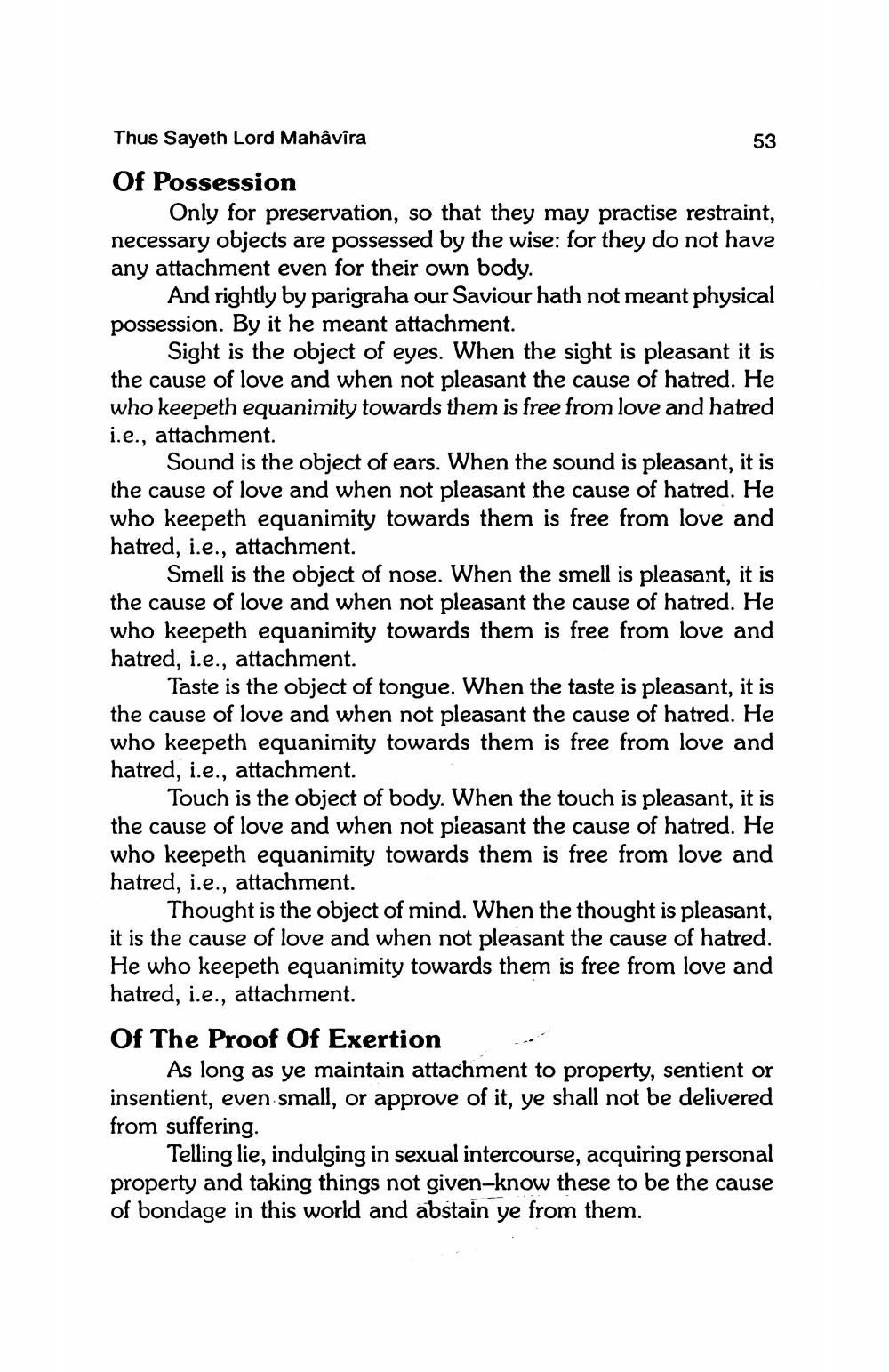________________
Thus Sayeth Lord Mahâvîra
Of Possession
Only for preservation, so that they may practise restraint, necessary objects are possessed by the wise: for they do not have any attachment even for their own body.
And rightly by parigraha our Saviour hath not meant physical possession. By it he meant attachment.
53
Sight is the object of eyes. When the sight is pleasant it is the cause of love and when not pleasant the cause of hatred. He who keepeth equanimity towards them is free from love and hatred i.e., attachment.
Sound is the object of ears. When the sound is pleasant, it is the cause of love and when not pleasant the cause of hatred. He who keepeth equanimity towards them is free from love and hatred, i.e., attachment.
Smell is the object of nose. When the smell is pleasant, it is the cause of love and when not pleasant the cause of hatred. He who keepeth equanimity towards them is free from love and hatred, i.e., attachment.
Taste is the object of tongue. When the taste is pleasant, it is the cause of love and when not pleasant the cause of hatred. He who keepeth equanimity towards them is free from love and hatred, i.e., attachment.
Touch is the object of body. When the touch is pleasant, it is the cause of love and when not pleasant the cause of hatred. He who keepeth equanimity towards them is free from love and hatred, i.e., attachment.
Thought is the object of mind. When the thought is pleasant, it is the cause of love and when not pleasant the cause of hatred. He who keepeth equanimity towards them is free from love and hatred, i.e., attachment.
Of The Proof Of Exertion
As long as ye maintain attachment to property, sentient or insentient, even small, or approve of it, ye shall not be delivered from suffering.
Telling lie, indulging in sexual intercourse, acquiring personal property and taking things not given-know these to be the cause of bondage in this world and abstain ye from them.




